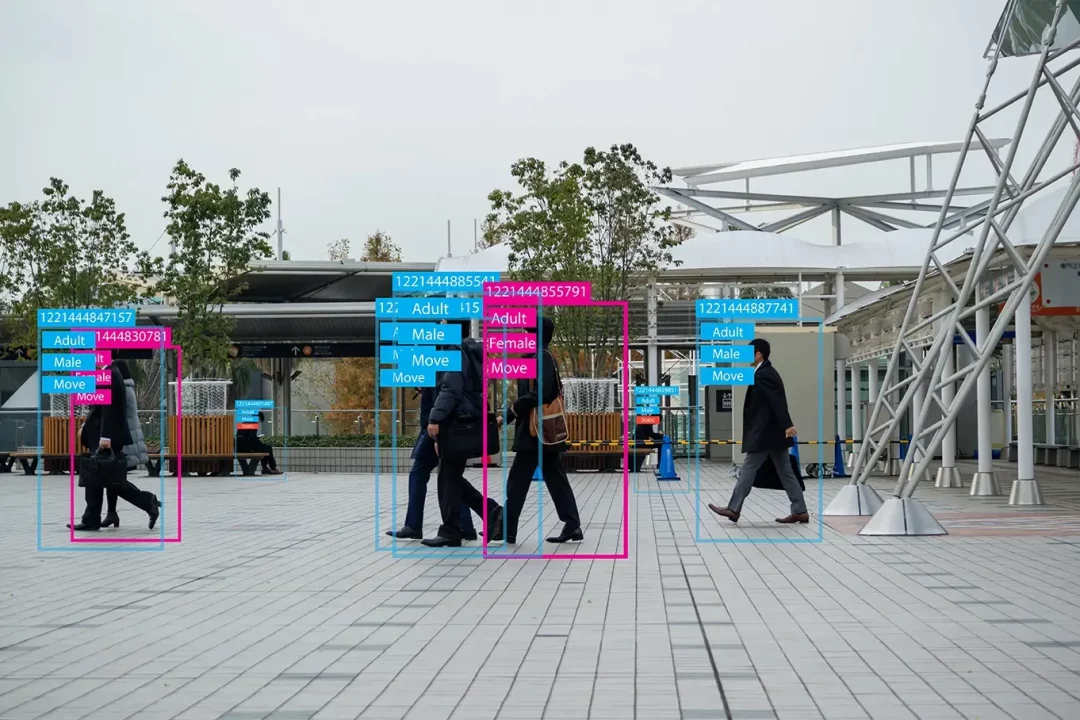The digital revolution has transformed countless industries, and the events sector is no exception. In this era of constant innovation, Artificial Intelligence (AI) and Data Analytics are emerging as fundamental pillars, redefining the way we conceive, organise and experience events. This article will explore the many benefits of AI in events, without neglecting the challenges that its implementation brings.
These technologies not only promise to make events more efficient and personalised, but also pose new challenges that industry professionals must be prepared to face. At Eventscase, we have a deep understanding of how the adoption of these technological solutions can make a significant difference to the success of an event.
Benefits of AI in Events
The incorporation of AI into event management has opened up a world of possibilities, from automating processes to personalising the attendee experience. Here we detail how these innovations are transforming the industry and the benefits of artificial intelligence in events:
Enhanced Personalisation
The benefits of AI in events when it comes to analysing large volumes of data enable unprecedented personalisation at events. Through the use of data analytics technologies, organisers can deliver tailored experiences for each attendee, from session recommendations to personalised networking.
AI allows users to be grouped according to their information consumption patterns and preferences, enabling personalised notifications to be sent about products or services of interest to them. This approach not only improves the user experience by making communications more relevant and personalised, but also increases efficiency by avoiding the sending of irrelevant information to other users, which is one of the benefits of AI in events.
Optimisation of Logistics
AI also plays a crucial role in event logistics, automating tasks such as registration and check-in, which significantly reduces queues and improves attendee satisfaction. AI-based event management tools, such as those offered by Eventscase access control software, can save time and resources, allowing organisers to focus on other critical aspects of the event.
Improving the Attendant Experience
These technologies not only facilitate event planning but also enrich the attendee experience through artificial intelligence at events in real time. From chatbots that offer instant assistance to apps that personalise the event agenda according to the user’s preferences, AI ensures that each attendee gets the most out of their participation, one of the major benefits of AI in events.
There are other ways in which AI can enhance the user experience, such as offering 24/7 customer service and optimising marketing and sales journeys to make interactions more relevant and effective. AI, through its analytics and predictive capabilities, can create experiences that are highly tailored to users’ wants and needs, increasing user satisfaction and loyalty.

Predictive Analytics
AI’s ability to perform predictive analytics is perhaps one of its most transformative benefits. By analysing data from previous events, organisers can forecast trends, adjust strategies, and anticipate attendee needs, ensuring not only the success of the current event but also continuous improvement for future editions.
For a deeper understanding of how AI is changing the game in the events industry, Eventscase offers different resources and detailed reports that illustrate the benefits of AI in events.
Challenges of AI in Events
The adoption of AI in the events sector brings with it a set of challenges that practitioners must effectively manage. These challenges of artificial intelligence in the events industry include technology integration, ethical and privacy concerns, and cost justification.
Information Architecture
Implementing AI in the events industry requires a specific and focused approach, starting with small projects and scaling up gradually. Event organisers may start with one application, before exploring more options. They may also start with treating a limited amount of data to observe and correct errors before expanding the use of AI.
Ethics and Responsibility
Ensuring the ethical and responsible use of AI is critical, as automated decisions can have significant impacts on individuals and society. It is essential to establish and adhere to clear ethical standards from the outset.
Data Biases
AI can perpetuate or even amplify existing biases if data and algorithms are not handled properly. A clear example was in the area of face recognition, where discrimination was evident due to a lack of diversity in the training datasets.
Training and Resources
Lack of training and technical knowledge is another significant challenge. Many companies lack the necessary resources to effectively implement AI projects.
Costs and ROI
Justifying investment in AI technology can be challenging, especially for events with limited budgets. However, the return on investment (ROI) can be significant, from improved attendee experience to operational efficiencies and long-term cost reductions.

Conclusion
Audiovisual event production is not a luxury but a necessity in today’s event management. As the world becomes more visual and connected, the ability to deliver rich and immersive audiovisual experiences becomes a key differentiator for the success of any event.
If you would like to subscribe to our newsletter to get live updates on everything related to our platform – news, blogs, events, announcements and much more, please, register here.





